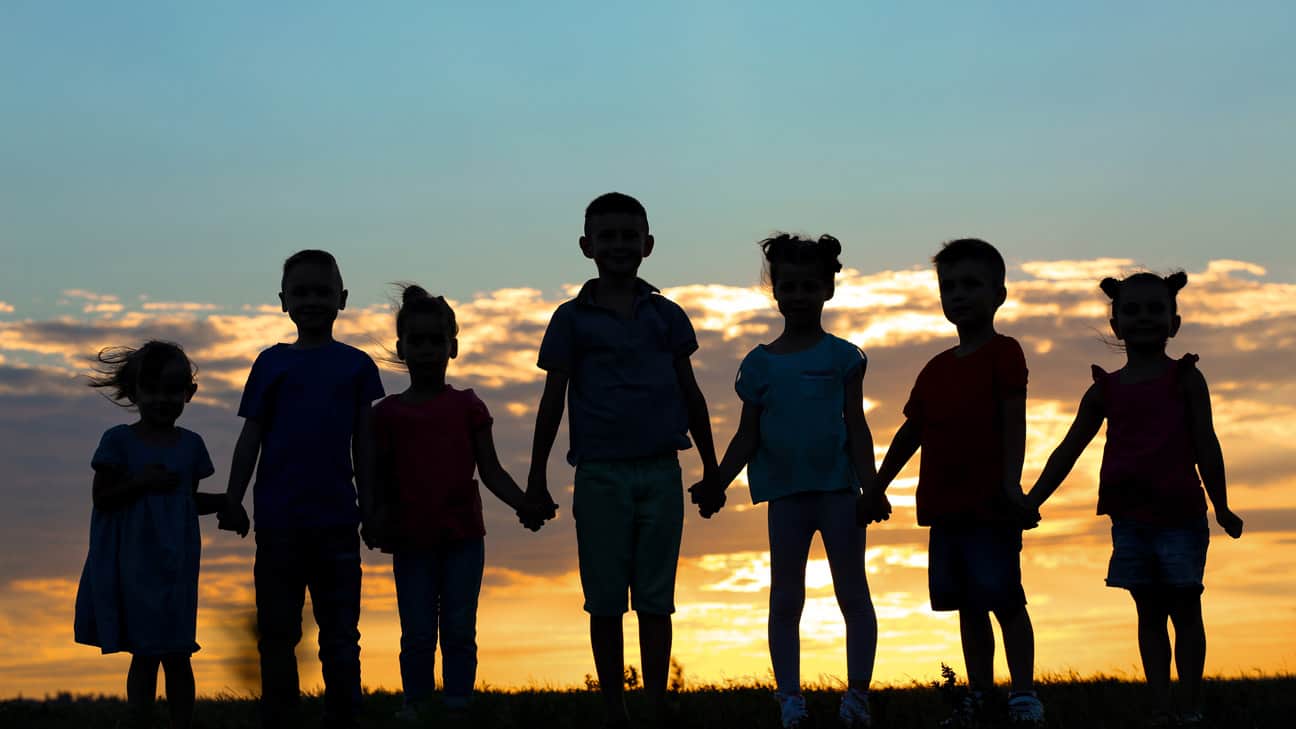
Kimberly Jump-CrazyBear, Osage and Oglala, from Virginia, holds a sign in support of ICWA when oral arguments for Haaland v. Brackeen case began in November 2022. The Supreme Court handed down a major decision Thursday, June 15, 2023, affirming the constitutionality of the Indian Child Welfare Act by a 7-2 vote.
Supreme Court upholds Indian Child Welfare Act
Published July 5, 2023By Kendra Germany-Wall
The US Supreme Court has ruled that Native American children can continue to be protected under federal law from removal from their tribal communities for fostering or adoption.
The court rejected a petition from a white couple who argued that the provision was a form of racial discrimination.
The Supreme Court’s decision upholds the Indian Child Welfare Act (ICWA), which gives Native Americans and tribal members preference in adopting or fostering Native American children.
By a vote of 7 to 2, the justices rejected the challengers’ claim that the requirement was a form of unconstitutional racial bias.
Justices Clarence Thomas and Samuel Alito were the lone justices to dissent.
In a majority opinion authored by Justice Amy Coney Barrett, the court turned down the challenges, a victory for the Biden administration and several Native American tribes that defended the law.
“The issues are complicated,” Barrett wrote, adding that “the bottom line is that we reject all of petitioners’ challenges to the statute, some on the merits and others for lack of standing.”
The case ultimately pitched the Brackeen family of Texas against Secretary of the Interior Deb Haaland representing the US government.
Haaland issued the following statement following the decision.

“Today’s decision is a welcome affirmation across Indian Country of what presidents and congressional majorities on both sides of the aisle have recognized for the past four decades. For nearly two centuries, federal policies promoted the forced removal of Indian children from their families and communities through boarding schools, foster care, and adoption. Those policies were a targeted attack on the existence of Tribes, and they inflicted trauma on children, families and communities that people continue to feel today. Congress passed the Indian Child Welfare Act in 1978 to put an end to those policies. The Act ensured that the United States’ new policy would be to meet its legal and moral obligation to protect Indian children and families, and safeguard the future of Indian Tribes.”
President Joe Biden also weighed in shortly after the ruling, stating that ICWA is a vital law he proudly supports and stands with tribes.
In his statement, Biden stated that the ruling keeps in place a vital law that protects tribal sovereignty and Native children.
“Our Nation’s painful history looms large over today’s decision. In the not-so-distant past, Native children were stolen from the arms of the people who loved them. They were sent to boarding schools or to be raised by non-Indian families—all with the aim of erasing who they are as Native people and tribal citizens,” the statement reads. “These were acts of unspeakable cruelty that affected generations of Native children and threatened the very survival of Tribal Nations. The Indian Child Welfare Act was our Nation’s promise: never again,” said President Biden.
The June 15 decision marks a historic win for tribes nationwide.
Tribes and tribal groups united in calling for a retention of the law, which requires Native children to be prioritized within their extended families, tribes or other Native communities. They argued that ICWA is essential for the survival of the tribes themselves.
“Congress passed the Indian Child Welfare Act (ICWA) to right the extreme historical injustices committed against Native children and their families. The law remains a critical part of protecting Native American heritage and tribal sovereignty. We are glad to see the Supreme Court recognized the important benefits of ICWA and allowed the law to stand. The Choctaw Nation will continue to support children and families through its foster care system, Indian Child Welfare team, tribal attorneys and over 100 tribal services,” said Gary Batton, Chief of the Choctaw Nation of Oklahoma.
You can read more from Chief Batton on this subject in his monthly column on page two of the July issue of the Biskinik.
For more information on the Choctaw Nation’s relationship with ICWA, visit choctawnation.com/services/indian-child-welfare/.
INDIAN CHILD WELFARE ACT OF 1978 FAQ
What is ICWA?
ICWA is a statute passed by Congress to address the agency policies and practices that resulted in the wholesale separation of Indian children from their families.
State and private agencies were removing as many as 25 – 35% of Indian children from their families and placing many of these children in non-Indian foster and adoptive homes.
Congress determined that cultural ignorance and biases within the child welfare system were significant causes of this problem.
Congress recognized that it is in the best interest of the child to maintain Tribal connections and that children are vital to Tribes’ continued existence, and enacted ICWA to “protect the best interests of Indian children and to promote the stability and security of Indian Tribes and families.”
What does ICWA do?
ICWA governs State child-custody proceedings in multiple ways, including: (1) by recognizing Tribal jurisdiction over decisions for their Indian children; (2) by establishing minimum Federal standards for the removal of Indian children from their families; (3) by establishing preferences for placement of Indian children with extended family or other Tribal families; and (4) by instituting protections to ensure that birth parents’ voluntary relinquishments of their children are truly voluntary. (See “Statute’s Basics” later in this list for additional information).
Why is this rule needed now?
While ICWA has been in place since 1978, compliance with ICWA has been inconsistent across, and even within, States. As a result, many of the issues that ICWA was intended to address continue to exist today:
Native American children are still disproportionately more likely to be removed from their homes and communities than other children. Indian families continue to be broken up by the removal of their children by non-Tribal public and private agencies. Nationwide, based on 2013 data, Native American children are represented in State foster care at a rate 2.5 times their presence in the general population. In some States, Native American children are represented in State foster-care systems at rates as high as 14.8 times their presence in the general population of that State.
Differing interpretations of ICWA provisions by individual States and State courts have created substantial variation in how this Federal law is applied. This final rule promotes the uniform application of an important Federal law to protect the rights of Indian children, their parents, and their Tribes, regardless of the child welfare worker, judge, or State involved.
Who is subject to ICWA?
ICWA applies to any State child-custody proceeding involving an “Indian child,” based on the child’s political affiliation with the Tribe. A child is an “Indian child” only if: (1) The child is himself or herself a member of a federally recognized Tribe; or (2) The child’s parent is a member of a federally recognized Tribe and the child is eligible for membership.
What if I don’t want ICWA to apply to me?
ICWA applies only if the child or parent is a citizen of a federally recognized Tribe. Parents may choose to not apply for Tribal citizenship for themselves or their child, or may renounce their Tribal citizenship. If a parent of the child is not a Tribal citizen, and the child is not a Tribal citizen, ICWA does not apply.
Does ICWA allow Tribes to “claim” children?
No. ICWA applies only to children who are citizens of a federally recognized Tribe, or who are eligible for citizenship and the child’s parent is a citizen of the Tribe.
For more on ICWA, visit bia.gov/bia/ois/dhs/icwa

